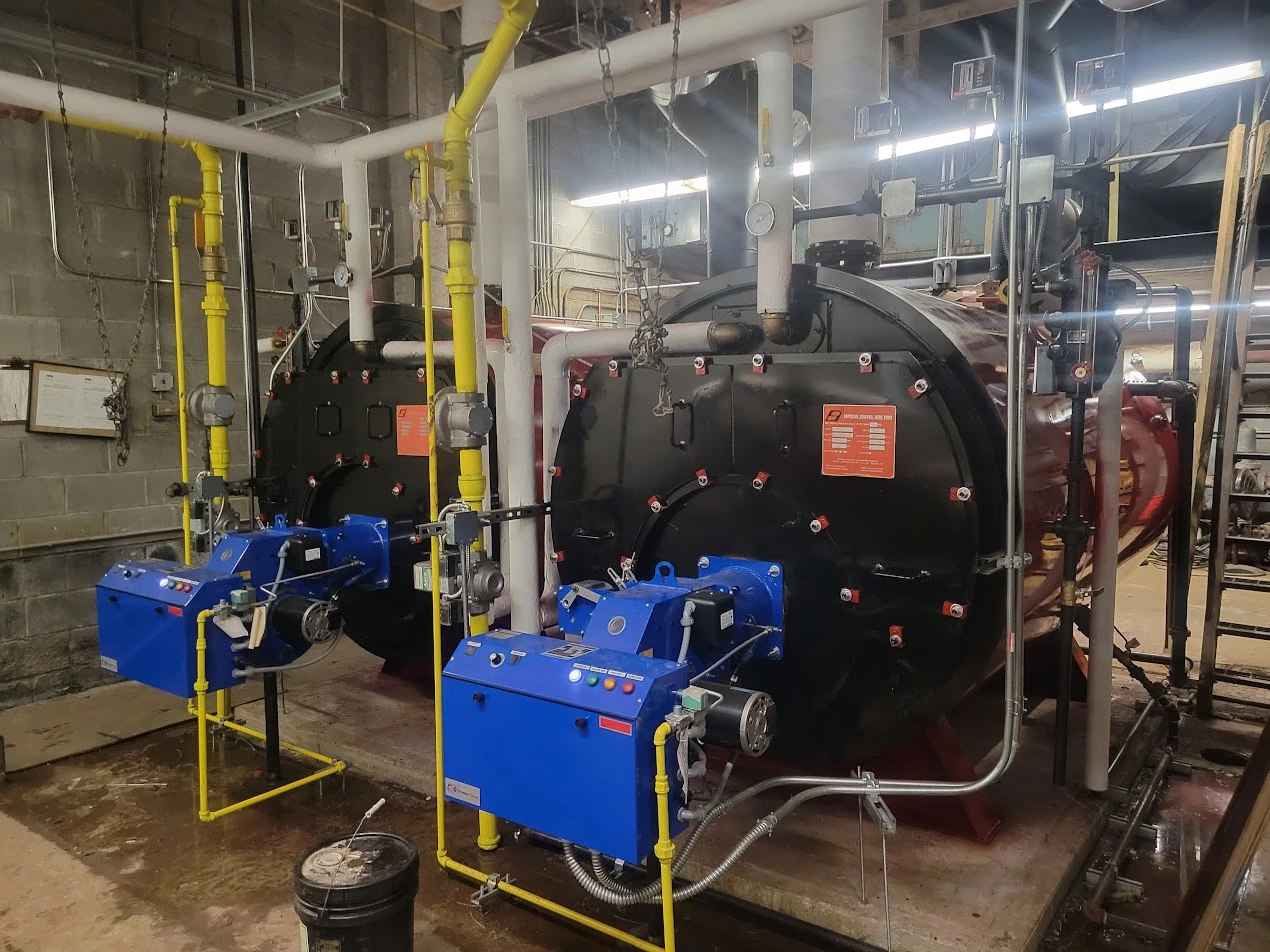Understanding Steam Boiler Efficiency: What You Should Know
Steam boilers meet a huge range of needs across various sectors. To facilitate the production of power, goods, and warming among other activities, it becomes imperative that a steam boiler produces heat. To the businessman whose business depends on these systems, it becomes vital to ensure that the steam boilers realize maximum efficiency for cost-effectiveness and sustainability in operations. The focus on what constitutes steam boiler efficiency and the factors determining it will greatly benefit a company’s bottom line.
What is Steam Boiler Efficiency?
The steam boiler efficiency describes the boiler’s ability to convert fuel into steam energy with minimal energy loss in order to provide usable forms of energy. It is measured in percentage terms and reflects how well the boiler operates under given conditions. The higher the efficiency, the more heat transferred to the water, which will then produce higher amounts of steam with higher energy retention and less wasted energy. Boiler efficiencies are of two types: thermal efficiency and fuel-to-steam efficiency.
- Thermal Efficiency: This is the ability of the boiler to convert the energy from the source fuel into heat in steam. It considers the heat losses in boiler operation, especially due to radiation and heat losses through flue gases.
- Fuel-to-Steam Efficiency: This is based on the fuel energy used for steam production and hence includes all the possible losses. This can be stack losses, radiation losses, and blow down losses.
Factors Affecting Steam Boiler Efficiency
Several factors ensure steam boilers are quite efficient. These are provided by the design, operation, and maintenance practices of boilers. Among such factors, there are several major elements of boiler efficiency, which include:
- Type of Fuel Used: The type of fuel used will determine different kinds of energy density and overall burn efficiency. For instance, natural gas burns a great deal cleaner and at greater efficiency than coal, thereby providing a higher boiler efficiency. Fuel type and supply consistency contribute to the maintenance of consistent combustion and efficiency.
- Combustion Efficiency: Combustion efficiency is how well the fuel is combusted in the boiler. A boiler requires simply the proper proportion of air mixed with the fuel for complete combustion. If there is too much air, there will be incontestable energy losses since more heat escapes out of the flue. Too little air will make parts of the fuel burn less than perfectly, leaving it unburned.
- Boiler Design: Boiler design determines the efficiency of the boiler. Advanced features such as modern boilers equipped with economizers, air preheaters, and condensing economizers can cause increased efficiencies, capturing heat from the exhaust gases to preheat incoming water or air into the boiler.
- Heat Losses: There are several types of heat loss that may be incurred by a boiler:
- Radiation Losses: Heat that is lost through the external surface of the boiler.
- Convection Losses: Convection losses occur because of the air passing over the exterior of the boiler.
- Flue Gas Losses: The flue gas losses are related to the heat loss in gases emitted from the boiler. It depends upon the temperature and composition of those gases.
- Boiler Load: The load or demand imposed on a boiler can be another factor affecting its efficiency. Although, in general, boilers are more efficient when operating at a full load than when running on partial loads, the time that the boiler cycles on and off increases because of changes in demand.
- Blowdown Rate: Blowdown is the process of removing water from the boiler to control the level of impurities that can affect heat transfer. However, excessive blowdown leads to losses in efficiency because heated water goes through the blowdown, hence requiring more energy to replace it with cold water.
Methods to Increase Efficiency in Steam Boiler
Improving the steam boiler’s efficiency might require merely those measures and habits that reduce heat losses, promote combustion, and maximize the performance of a given system. Here are some ways to achieve higher efficiency:
- Regular Maintenance Implementation: This will maintain the boiler operation in its best condition. Regular inspection and cleaning of components, such as burners, tubes, and heat exchangers, is crucial not to accumulate soot that would prevent heat transfer and reduce efficiency.
- Optimization of Combustion Combustion Air-to-fuel ratio: The air-to-fuel ratio should be optimized in order to maintain the optimal combustion conditions. Advanced control systems along with sensors can be used to monitor and adjust the combustion process to assure that the boiler runs within the desired range of efficiency.
- Installation of Economizer: An economizer provides hot flue gases that are permitted to pass through tubes through which feedwater entering the boiler passes. The water gets preheated because of heat generated in the flue gases, thus the heat is recovered from the flue gases that were otherwise wasted and more fuel is not consumed for heating the water till it gets in the form of steam.
- Excess air reduction: Reduction of excess air is necessary as excess air ensures complete combustion, while in excess, it exerts pressure on stack temperature and thus results in the loss of energy. Therefore, there is always excess air that needs to be checked in flue gas and the air supply tuned up so that it may be reduced to a minimum.
- Control of pumps and fans in a boiler system through variable speed drives: Variable speed drives might be used for regulating pump and fan speed. VSDs can trim energy use by regulating the airflow, water flow, or fuel according to the load demands.
- Implement a Blowdown Heat Recovery System: A blow-down heat recovery system captures the heat from blow-down water and uses this to preheat feedwater or produce low-pressure steam. This reduces the energy needed to raise the temperature of the fresh water and improves your boiler’s efficiency.
Routine observation of significant performance indicators such as fuel consumption, steam output, stack temperature, and water quality enables efficiency improvement by compensating for these losses. This can also be partially realized by the use of digital monitoring tools and control systems to automate the process of monitoring these results.
Why Boiler Efficiency Matters?
Boiler efficiency is very crucial in industrial activities for several reasons:
- Cost Savings: Higher efficiency means more fuel savings, that is, lower fuel consumption and reduced operational costs. What this amounts to is that even minute increases in boiler efficiency can result in large savings over the long term, particularly in high energy-intensive industries.
- Environmental Impact: Fuel usage reduction through improvement in boiler efficiency reduces the burning of fuels and, by effect, further pollution through several combustion by-products, including carbon dioxides, sulfur oxides, and nitrogen oxides. Such features are highly significant in industries that seek to adhere to environmental regulations and minimize their carbon footprint.
- Long life of Boiler: Efficient level helps weaken the boiler and its parts minimally. This way, with proper servicing, a boiler may last longer, with less frequent repairs or replacements.
- Compliance with standards: Most regions have strict standards on energy efficiency, emissions, and regulations for their industrial boilers. Ensuring an efficient boiler will be followed by compliance with regulations, which will avoid fines and penalties.
Common Misunderstandings Regarding Boiler Efficiency
There are a few common misconceptions regarding what influences the boiler efficiency. Here are a few to watch for:
- Bigger Boilers are Always More Efficient: While larger boilers may indeed have a higher thermal efficiency at full load, they are usually less efficient when running at partial loads. The system should be sized appropriately to match the load requirements.
- New Boilers Need No Maintenance: Even new boilers require regular maintenance to operate at the maximum level of efficiency. Dust, debris, and scale buildup can affect the performance of any boiler, irrespective of the age of the boiler.
- Higher Steam Pressure Is More Efficient: On the other hand, higher steam pressure has no relevance with efficiency. It only increases the temperature of the steam, and it can suffer more heat losses. It needs to be set according to the requirements of the process.
Choose Supreme Boilers for Better Performance and Efficiency
The steam boiler efficiency is only optimized with the right equipment. For a long time, Supreme Boilers has provided efficient steam boilers that deliver high thermal efficiency combined with reliability in every industrial application. The FPS Series boilers from Supreme Boilers are advanced, as they feature economizers and low-emission burners. This makes them ideal for business companies wanting to save more on energy and reduce environmental impact. With innovation and quality commitment, each unit developed at Supreme Boilers is not only meeting but never compromising the industries in any criteria, offering a firm, cost-effective, and efficient solution for all their steam-related needs.
Conclusion
The efficiency of the steam boiler is optimized in which the industries help minimize their fuel consumption, and in turn, there will be low operational costs and environmental impact together with equipment lifespan. There are lots of ways to enhance boiler performance. Among these are making sure that the fuel used for the boiler is of the right type, combined with proper practices in combustion, and adequate recovery of heat. Ideal strategies that entail maximum boiler efficiency include regular maintenance and constant monitoring, as well as the availability of the latest technologies. As such, it will continue to be extremely relevant in the sustainability of industrial operations to have companies employ energy consciousness to improve boiler efficiency.














Post Comment